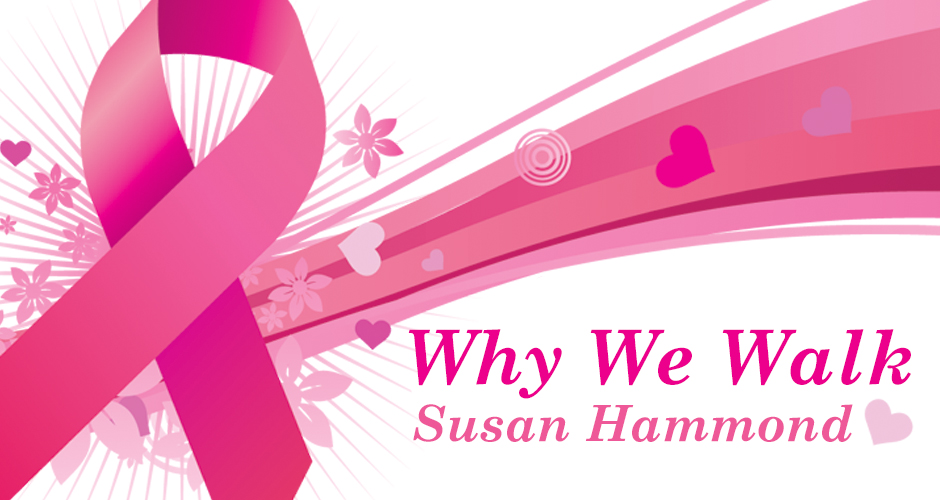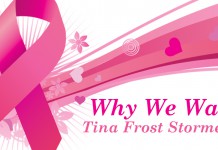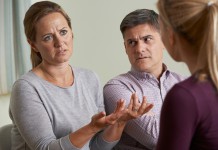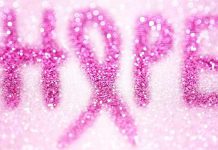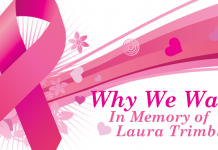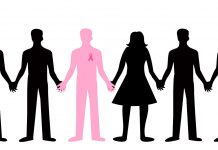In this ‘Why We Walk’ testimonial, we introduce Susan Hammond, a tough grandma who wasn’t going to allow breast cancer to take her away from her family.
Her reason for walking: I walk to support those in my family who have this horrid disease and those who are no longer with us. I also do it to set an example for the younger generation about what can be done to wipe breast cancer out.

Here is Susan’s story:
Can you briefly tell me a little about yourself?
I am a mother and stepmother of seven, grandmother of 16 and great-grandmother of one. I retired from retail sales to take care of my mother who was diagnosed with lymphoma. Pet kids – three. Friends – a few good ones. Acquaintances – many.
When were you diagnosed with breast cancer and how old were you?
I was diagnosed in October, 2009, which seemed like an appropriate month. I was 67 when diagnosed.
What stage were you diagnosed with?
I was diagnosed with DCIS (Ductal Carcinoma in Situ), stage 0, which is the “best” stage, under the circumstances.
How was the cancer detected?
I had a routine mammogram, then received a call back because there was something doctors couldn’t verify. I had an ultrasound to see what the “spot” was, which led to a needle biopsy. It wasn’t pleasant, but at least it was explained thoroughly. Those results gave the diagnosis.
What were your primary concerns after being diagnosed?
Actually, at first I had no concerns. Then, I was worried how I would tell my kids. My husband, on the other hand, took the news in stride.
How did you cope with this news and how did your family react?
I think I coped very well. I had to wait two weeks for results and was told I could call and find out what they were before seeing my oncologist. I never called about it. If it was there, why worry about it for two weeks, I thought.
The doctor and nurse determined it was cancer and explained how the treatment process was going to work. My husband told me, much later, that he couldn’t imagine what he would do and how he would cope with having cancer. He was scared and didn’t want to lose me to breast cancer.
But, I told him that I was going nowhere because I had to be there to keep everyone, including him, in line! My children never really told me how they felt when they heard it. They seemed to react the same as I did – we’ll see what has to be done and do it.
Briefly explain your treatment process.
Within the week after diagnosis, I had a lumpectomy, which is removing the lump with no other complications involved. I then had six weeks of radiation – five days on, two days off.
What obstacles did you face during your treatment?
I had no major obstacles to face, except driving to the hospital every day for treatments and fighting the traffic, ha-ha. Different cancer specialists talked to me about getting chemotherapy and taking tamoxifen (an after surgery drug to be taken for five years) as a follow up, but I decided I did not want additional drugs polluting my system.
My feeling was different from several of my children, who wanted me to do it, but I felt what I wanted to do was best.
[pullquote align=”full” cite=”” link=”” color=”” class=”” size=””]“My doctor said I had “wannabe” cancer and that’s just the way I felt. I didn’t feel like a survivor because there were so many others in the world who have had breast cancer much worse than I have. I have since agreed I am really lucky.”[/pullquote]
How has breast cancer impacted your outlook on life?
I am now more diligent about getting health tests. For example, getting my mammogram every year and urging my daughters and friends to do the same.
What advice would you like to give people about breast cancer?
For me, it was very simple. My doctor said I had “wannabe” cancer and that’s just the way I felt. I didn’t feel like a survivor because there were so many others in the world who have had breast cancer much worse than I have. Doctors and friends disagree and I have since agreed I am really lucky.
Pray, trust your doctors and learn as much as you can so you won’t be so afraid or clueless. And always get your yearly mammogram. My kids’ family has history on their fathers’ side (I am adopted), so they need to do whatever they feel needs to be done.
If you feel like a BRCA test (to determine that you may get breast cancer) is in your best interest, do it.
How can we raise more awareness about breast cancer?
I can’t think of much more that needs to be done other than the walks, and the different things that go on throughout the year, including the special events in October.
Do you participate in breast cancer walks? Why do you walk?
Yes, along with my family and friends. I walk to support those in my family who have this horrid disease and those who are no longer with us. I also do it to set an example for the younger generation about what can be done to wipe it out.
My family participates – usually my husband, daughters, granddaughters, grandsons, great-granddaughter and friends. A friend decided on a name (so original) – Team Susan! It all started because of my diagnosis. It was said we needed to do it in honor of me and to honor others and remember those who aren’t with us anymore. And to show PINK POWER!!

*If you would like to share your story or know someone who may be interested, please contact us at social@www.bisk.com.


